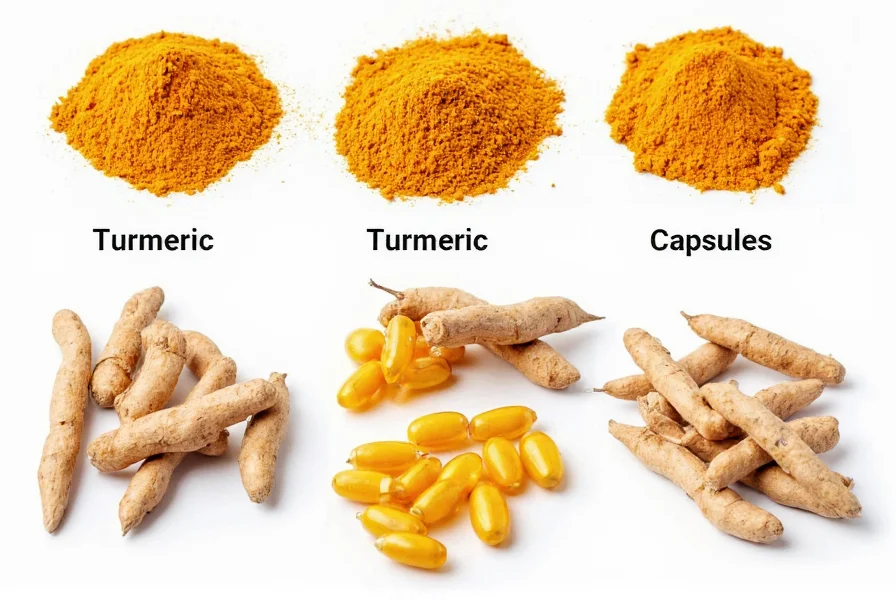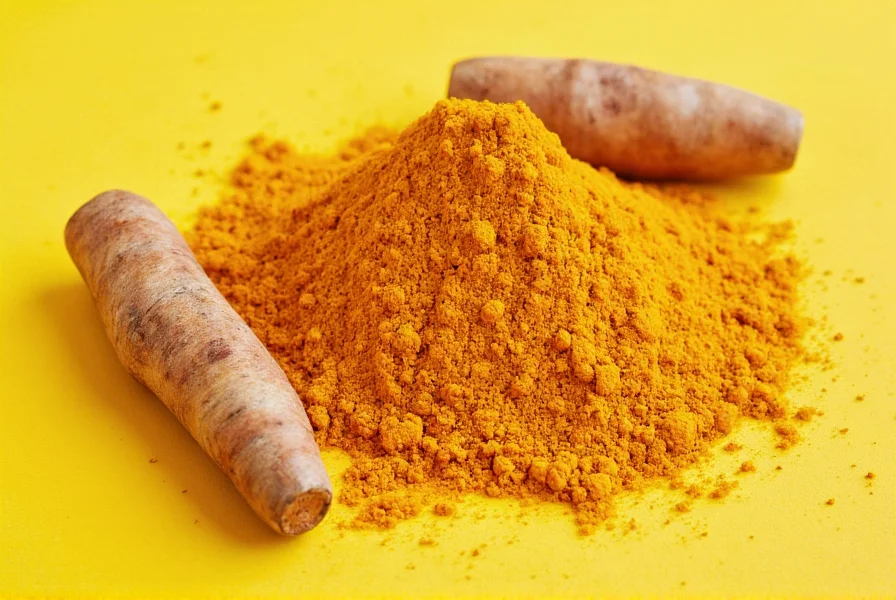For general health benefits, the recommended daily turmeric amount is 500-2,000 mg of curcumin (the active compound in turmeric), typically divided into multiple doses. Culinary use ranges from 1/2 to 1.5 teaspoons (1-3 grams) of turmeric powder daily. Therapeutic doses for specific conditions may range from 500 mg to 8,000 mg of curcumin extract, but should be determined with healthcare provider guidance.
As turmeric continues gaining recognition for its potential health benefits, understanding the appropriate turmeric amount for various purposes has become essential knowledge. This golden spice contains curcumin, the compound responsible for most of its studied benefits, but determining the right dosage isn't one-size-fits-all. Whether you're incorporating turmeric into your cooking or considering supplements for specific health concerns, getting the turmeric dosage guidelines right matters for both effectiveness and safety.
Understanding Turmeric Measurements and Forms
Turmeric comes in several forms, each with different curcumin concentrations, making standardized turmeric measurements crucial for accurate dosing:
| Form of Turmeric | Typical Curcumin Content | Equivalent Daily Amount |
|---|---|---|
| Fresh turmeric root | 2-5% curcumin | 1-3 inches (2.5-7.5 cm) |
| Turmeric powder | 3-5% curcumin | 1/2 to 1.5 teaspoons (1-3 grams) |
| Standardized curcumin extract | 95% curcumin | 500-2,000 mg |
| Enhanced absorption formula | Varies (with piperine or lipids) | Lower doses effective (250-1,000 mg) |
When discussing optimal turmeric consumption, it's important to distinguish between culinary use and therapeutic supplementation. The turmeric amount for inflammation typically exceeds what you'd get from cooking alone, requiring concentrated forms for measurable effects.
Daily Turmeric Intake for General Wellness
For everyday health maintenance, moderate culinary use provides benefits without risk. The recommended turmeric daily intake for general wellness includes:
- Culinary use: 1/2 to 1.5 teaspoons (1-3 grams) of turmeric powder daily, equivalent to about 50-150 mg of curcumin
- Supplemental use: 500-1,000 mg of standardized curcumin extract (95% curcumin) once or twice daily
- With absorption enhancers: 250-500 mg of curcumin with black pepper (piperine) or in lipid-based formulations
Research suggests that consistent daily turmeric consumption yields better results than sporadic high doses. The standard turmeric dosage for adults in most general health studies falls within these ranges, with positive effects on oxidative stress and inflammation markers.

Therapeutic Turmeric Amounts for Specific Conditions
When targeting specific health concerns, research indicates different turmeric therapeutic dosages. However, these should always be discussed with a healthcare provider before implementation:
- For inflammation and joint health: 500 mg of curcumin twice daily (1,000 mg total), often combined with 5-10 mg of piperine to enhance absorption by up to 2,000%
- For metabolic health: 800 mg of curcumin daily has shown benefits in blood sugar regulation in clinical studies
- For cognitive support: Studies have used 500 mg of curcumin twice daily for cognitive function improvement
- For mood support: 500 mg of curcumin once or twice daily has been studied for potential mood benefits
The maximum safe turmeric amount varies by individual, but most studies using therapeutic doses have stayed within 8,000 mg of curcumin daily without serious adverse effects, though such high doses are not generally recommended for long-term use.
Safety Considerations and Upper Limits
Understanding the safe turmeric consumption limits is critical for responsible use. While turmeric is generally recognized as safe (GRAS) by the FDA at culinary doses, higher amounts require caution:
- The acceptable daily intake of turmeric from food sources is not strictly limited, but supplement forms require more careful consideration
- The European Food Safety Authority established an acceptable daily intake of 0.13 mg of curcumin per pound (0.3 mg/kg) of body weight
- Most clinical trials use doses between 500-2,000 mg of curcumin daily without significant issues
- Potential side effects at high doses include digestive upset, nausea, and in rare cases, increased risk of kidney stones
Certain populations should exercise particular caution with turmeric dosage recommendations:
- Individuals with gallbladder issues should consult a doctor before high-dose turmeric use
- Those taking blood thinners should discuss turmeric amounts with their healthcare provider
- Pregnant or breastfeeding women should stick to culinary amounts unless advised otherwise
- People with iron deficiency should monitor turmeric intake as it may affect iron absorption
Practical Tips for Optimal Turmeric Consumption
To maximize the benefits of your turmeric daily amount, consider these evidence-based strategies:
- Pair with black pepper: Just 1/20th of a teaspoon (about 5 mg) of black pepper significantly enhances curcumin absorption
- Combine with healthy fats: Curcumin is fat-soluble, so consuming turmeric with oils, avocado, or nuts improves absorption
- Heat gently: Light cooking can increase curcumin bioavailability, but avoid high-temperature frying
- Spread throughout the day: Multiple smaller doses often provide more consistent blood levels than one large dose
- Consider timing: Taking turmeric with meals reduces potential digestive upset and enhances absorption
When determining your personalized turmeric dosage, start low and gradually increase to assess tolerance. The ideal turmeric amount per day varies based on individual factors including health status, age, and specific goals. Always consult with a healthcare professional before starting high-dose turmeric supplementation, especially if you have underlying health conditions or take medications.











 浙公网安备
33010002000092号
浙公网安备
33010002000092号 浙B2-20120091-4
浙B2-20120091-4